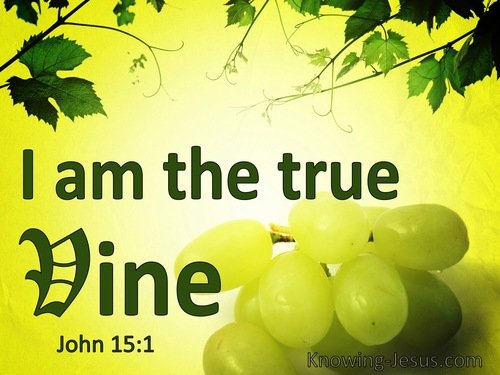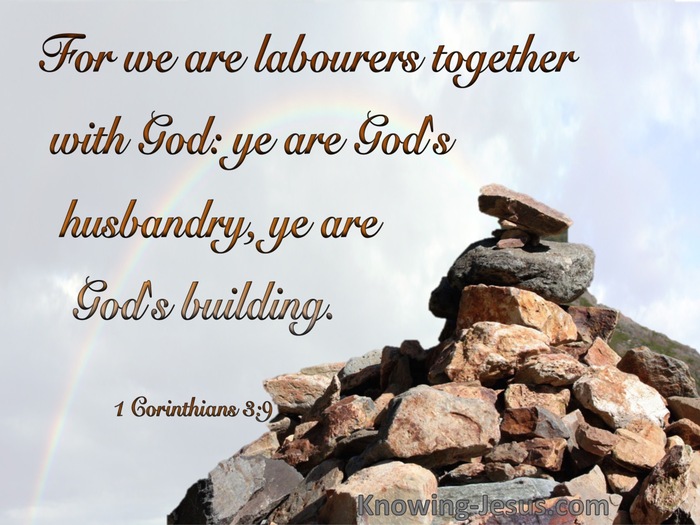48 Bible Verses about Farming
Most Relevant Verses
So be patient, brothers and sisters, until the Lord's return. Think of how the farmer waits for the precious fruit of the ground and is patient for it until it receives the early and late rains.
And when the grain is ripe, he sends in the sickle because the harvest has come."
He then told them a parable: "The land of a certain rich man produced an abundant crop,
When you gather in the harvest of your land, you must not completely harvest the corner of your field, and you must not gather up the gleanings of your harvest. You must leave them for the poor and the foreigner. I am the Lord your God.'"
I also discovered that the grain offerings for the Levites had not been provided, and that as a result the Levites and the singers who performed this work had all gone off to their fields.
At harvest time he sent a slave to the tenants to collect from them his portion of the crop.
They will build houses and live in them; they will plant vineyards and eat their fruit.
He also said, "The kingdom of God is like someone who spreads seed on the ground.
but in the seventh year the land must have a Sabbath of complete rest -- a Sabbath to the Lord. You must not sow your field or prune your vineyard.
I passed by the field of a sluggard, by the vineyard of one who lacks wisdom.

Now when the owner of the vineyard comes, what will he do to those tenants?"
Now God who provides seed for the sower and bread for food will provide and multiply your supply of seed and will cause the harvest of your righteousness to grow.
We are coworkers belonging to God. You are God's field, God's building.
Instead he will say, 'I am no prophet -- indeed, I am a farmer, for a man has made me his indentured servant since my youth.'
Once again you will plant vineyards on the hills of Samaria. Those who plant them will once again enjoy their fruit.
Then he began to tell the people this parable: "A man planted a vineyard, leased it to tenant farmers, and went on a journey for a long time.
You must not plant your vineyard with two kinds of seed; otherwise the entire yield, both of the seed you plant and the produce of the vineyard, will be defiled.
But if it produces thorns and thistles, it is useless and about to be cursed; its fate is to be burned.
He goes to sleep and gets up, night and day, and the seed sprouts and grows, though he does not know how.
Does a farmer just keep on plowing at planting time? Does he keep breaking up and harrowing his ground?
But in the seventh year you must let it lie fallow and leave it alone so that the poor of your people may eat, and what they leave any animal in the field may eat; you must do likewise with your vineyard and your olive grove.
Whenever the Israelites planted their crops, the Midianites, Amalekites, and the people from the east would attack them.
Yes, the Lord has this to say to the people of Judah and Jerusalem: "Like a farmer breaking up hard unplowed ground, you must break your rebellious will and make a new beginning; just as a farmer must clear away thorns lest the seed is wasted, you must get rid of the sin that is ruining your lives.
He who watches the wind will not sow, and he who observes the clouds will not reap.
Then she gave birth to his brother Abel. Abel took care of the flocks, while Cain cultivated the ground.
Amos replied to Amaziah, "I was not a prophet by profession. No, I was a herdsman who also took care of sycamore fig trees.
Grain is crushed, though one certainly does not thresh it forever. The wheel of one's wagon rolls over it, but his horses do not crush it.
The land must not be sold without reclaim because the land belongs to me, for you are foreigners and residents with me.
Other seed fell on rock, and when it came up, it withered because it had no moisture.
He told them many things in parables, saying: "Listen! A sower went out to sow.
The workers of the city from all the tribes of Israel will cultivate it.
The Lord God took the man and placed him in the orchard in Eden to care for it and to maintain it.
Then there will be two men in the field; one will be taken and one left.
He built towers in the desert and dug many cisterns, for he owned many herds in the lowlands and on the plain. He had workers in the fields and vineyards in the hills and in Carmel, for he loved agriculture.
When Isaac planted in that land, he reaped in the same year a hundred times what he had sown, because the Lord blessed him.
The sluggard will not plow during the planting season, so at harvest time he looks for the crop but has nothing.
Elisha went back and took his pair of oxen and slaughtered them. He cooked the meat over a fire that he made by burning the harness and yoke. He gave the people meat and they ate. Then he got up and followed Elijah and became his assistant.
When you try to cultivate the ground it will no longer yield its best for you. You will be a homeless wanderer on the earth."
So the Lord God expelled him from the orchard in Eden to cultivate the ground from which he had been taken.


